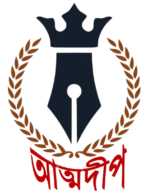Volume-I, Issue-VI, July 2025
Volume-I, Issue-VI, July, 2025 |
Received: 18.07.2025 | Accepted: 20.07.2025 | ||
Published Online: 31.07.2025 | Page No: 1369-1374 | ||
DOI: 10.69655/atmadeep.vol.1.issue.06W.142 | |||
সময়ের অভিঘাত এবং প্রত্নস্মৃতি: দীপেন্দ্রনাথ বন্দ্যোপাধ্যায়ের ‘অশ্বমেধের ঘোড়া’ এবং ‘জটায়ু’ গল্পে পুরাণের পুনর্পাঠ শ্রেয়সী মল্লিক, গবেষক, বাংলা বিভাগ, ডায়মন্ড হারবার মহিলা বিশ্ববিদ্যালয়, পশ্চিমবঙ্গ, ভারত |
Impact of Time and Collective Memory: A Re-reading of Mythology in Dipendranath Bandyopadhyay’s Stories Ashwamedher Ghora and Jatayu Shreyasi Mallik, Research Scholar, Department of Bengali, Diamond Harbour Women’s University, West Bengal, India | ||
ABSTRACT | ||
In post-World War II Bengali literature, the consciousness of time and the crisis of existence emerged with particular significance. This era was marked by political instability, the trauma of Partition, the refugee crisis, and the struggles of middle-class life. Dipendranath Bandyopadhyay—both a writer and a leftist political activist—reflected these crises in his fiction with a deep sociological perspective. His short stories “Ashwamedher Ghora” and “Jatayu” interweave mythological elements with the crises of modern life to construct a new narrative discourse. In “Ashwamedher Ghora” (The Horse of Ashwamedha), the metaphor of the Vedic sacrificial horse is used in the context of a married couple, Rekha and Kanchan, to explore the weariness of middle-class life, the crisis of social recognition, and urban loneliness. While the galloping horse once symbolized the glory of imperial conquest, here it becomes a metaphor for the aimless, chaotic pace of city life. In “Jatayu”, the wounded wings of the mythological bird Jatayu merge with the rootless existence of a morally decaying time. This paper discusses how Dipendranath Bandyopadhyay's dialectical perspective transforms myth into a narrative intimately connected with the crises of modern times. | ||
Keyword:
|

